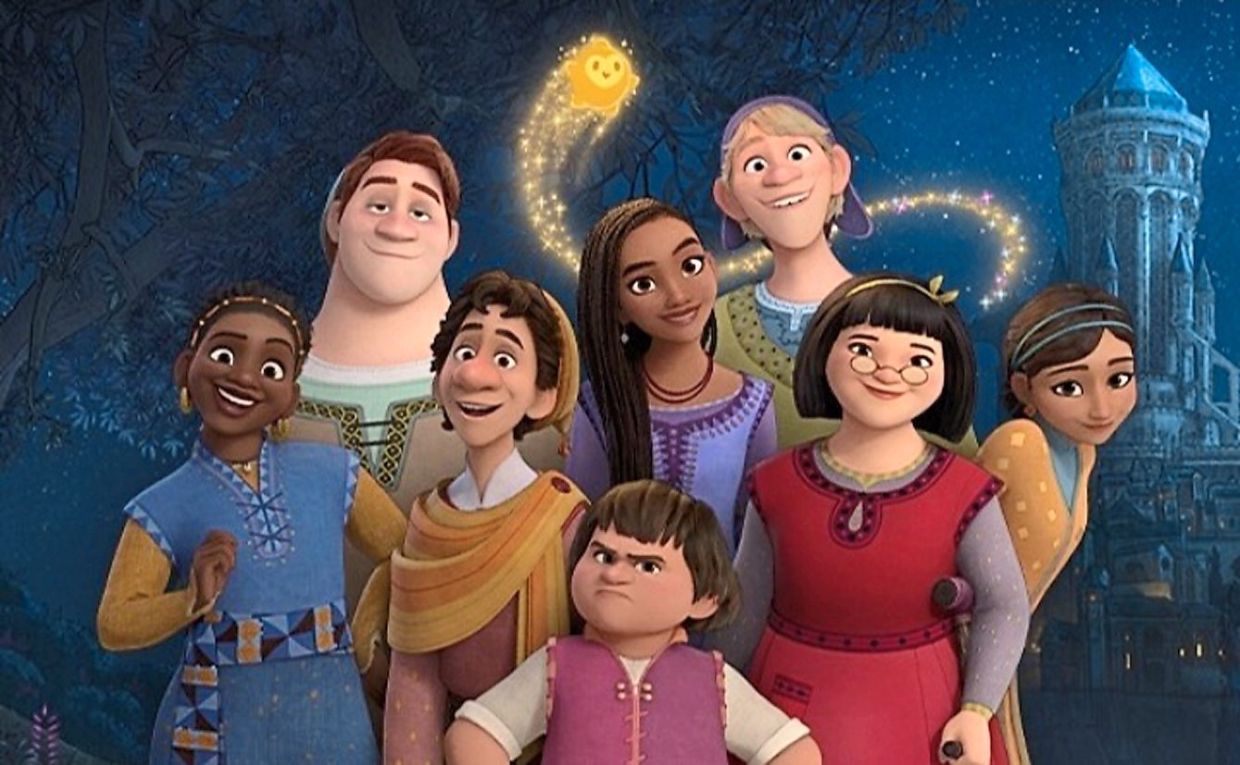Dahlia (with glasses) reflects the vibrant diversity of our communities, including characters with disabilities. Photos: Instagram/ Disney’s Wish
In the magical world of Disney’s movie Wish, the protagonist wishes on a star, which leads to a quest to support her community.
That mirrors Maddy Ullman’s experience working on the movie as an authenticity consultant. Growing up in a small town in Colorado, the United States, she didn’t see a lot of characters who reflected her experience as a Chinese American adoptee with cerebral palsy who’s also diabetic and neurodivergent.
She once thought: “Oh, I’m never going to be able to get into Hollywood. They’re never going to want me because of my intersectionalities – like being disabled, being adopted, being Asian. When do you see a person like that in media or working in media? I hadn’t for the longest time.”
But, she eventually worked her way to become a showrunner’s assistant in Hollywood. Then, she got the opportunity to consult on the Wish character Dahlia, a royal baker who is disabled and Asian.
She shares her experience working on the film, representation and her quest to tell authentic stories, and a little bit of her background.
“I was adopted from Hong Kong at three and a half, and I spent most of my childhood in Colorado. I spent some time in Dallas, Texas during high school, but I never thought I’d be back. But after the pandemic, you just need a reset.
“I came back to Dallas and I actually really love it. It was only supposed to be a year sabbatical, but I’ve been here almost two years. I’m a photographer and social media manager here, but I also get to do remote work on projects like Wish.”
Big dreamer
Regarding how she got involved with the project, she said: “I’ve been in entertainment since I was 24 so it’s been six years. I was living and working for two years out in Los Angeles, California. I worked at studios like Warner Brothers and Netflix.
“One of my passions, especially in the entertainment industry, is to create more authentic disability representation, because we don’t usually see it in mainstream media.
“I was tapped in as a subcontractor for an organisation called RespectAbility. Since Dahlia had a disability and was Asian, it was an intersectionality I never thought I’d see.”
When asked about what authenticity means to her, she explained: “I was brought in as a contractor, so it’s very much just a ‘call me if you need me’. We would look at the big picture. We would go through the movie, just little things people wouldn’t think of.
“A good example is they had Dahlia’s shoes be pointy – that’s not good for balance. I think it was about having a voice in the conversation about a character that was going to represent the community you belong to.
“Again, it was more about what was feasible. Can she reach that high or what movements would allow her crutch to be supportive? Would she have a seated position or would she be able to stomp?
“It’s about how she can exist in the movie where she is not just put in the realm of inspirational character or plot device.”
Regarding the idea of wanting to represent different communities, Ullman shared: “It’s just one character and everyone’s experience is very different. That’s something I still struggle with, because I do feel a need to represent my communities well. No one is ever going to look at a character and say, ‘Oh, that totally fits me’. There will always be someone that it doesn’t fit. Just to have the intersectionality of being Asian, disabled and a woman character, I was like yes.”
Concerning wanting to be the person that she wanted to see when she was growing up, Ullman explained: “That is a big, overarching theme, because I am adopted. My parents are white; my family, for the most part, is white. I was raised in a small town in Colorado where I didn’t see any other Asian people. No representation at all, in any sense of the word.
“I remember homecoming week. We had costume days and I really didn’t have anyone, so I dressed in black and said I was Lucy Liu from Charlie’s Angels.
“So I’m just trying to be that representation, because it changes lives when we see ourselves or parts of ourselves in mainstream media. It normalises it in a way that I didn’t have growing up.” – The Dallas Morning News/Tribune News Service
Wish upon a star
Dahlia (with glasses) reflects the vibrant diversity of our communities, including characters with disabilities. Photos: Instagram/ Disney’s Wish
Ullman’s journey ignites our aspirations to aim for the stars. Photo: Facebook/Maddy Ullman
As a disability advocate, Ullman has rewritten the narrative in Disney’s Wish, proving that every voice deserves to be heard. Photo: LinkedIn/Maddy Ullman
Including characters with disabilities in movies is crucial for fostering empathy and promoting diversity.
— Disney's Wish/Instagram









